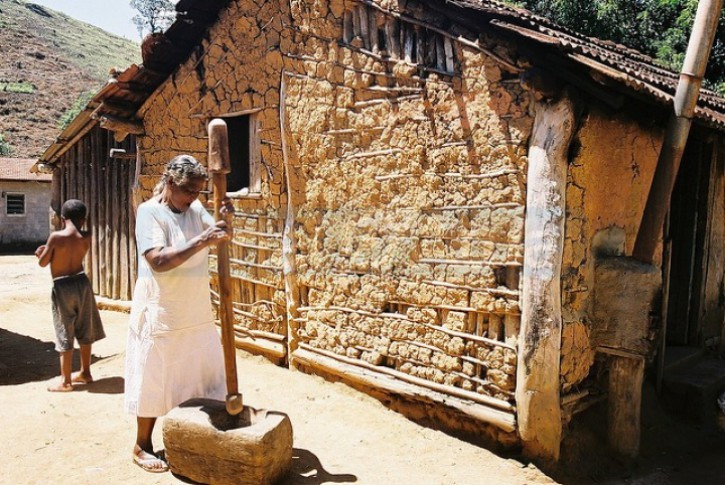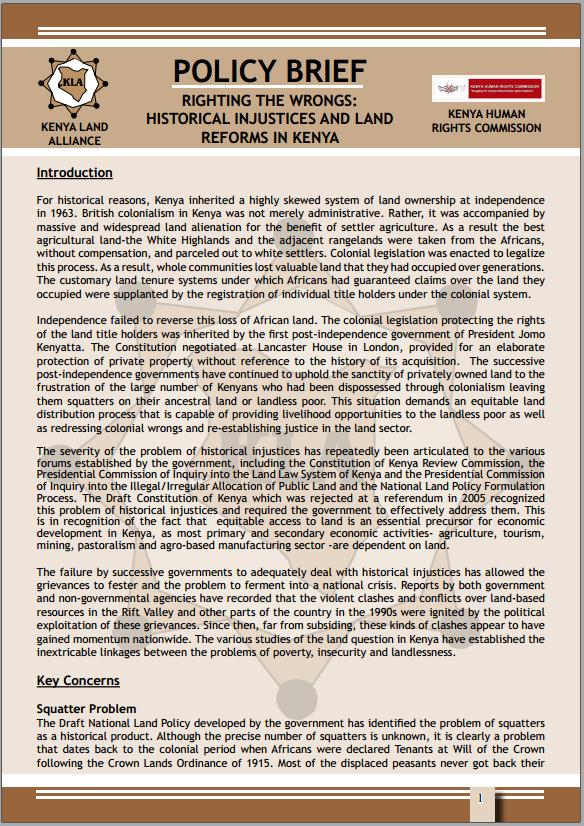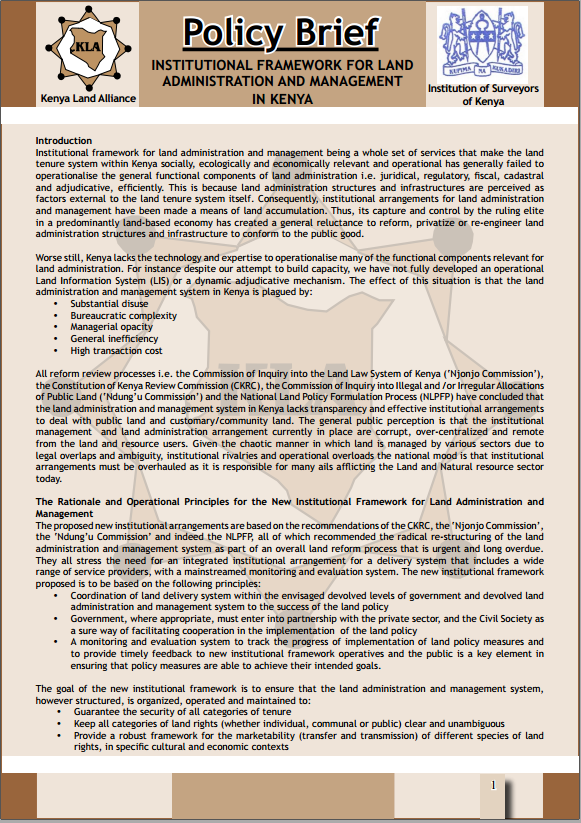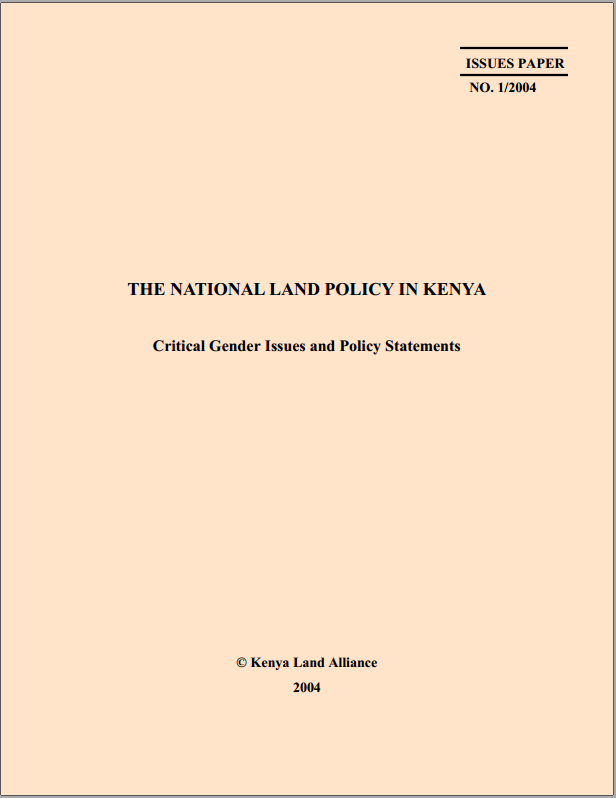A LUTA PELA EFETIVAÇÃO DOS DIREITOS ÉTNICOS E TERRITORIAIS DAS COMUNIDADES QUILOMBOLAS EM CONFLITOS SOCIOAMBIENTAIS
As Áfricas Brasileiras
O Brasil possui um passivo social e histórico com as comunidades quilombolas, marcado pela escravidão e a exclusão. As questões fundiárias são aquelas que mais afligem essas comunidades, que lutam pela regularização ou ampliação de seus reduzidos territórios. Embora seja visível o avanço jurídico representado pela legislação desde a Constituição de 1988, as comunidades quilombolas são marcadas pela vivência cotidiana de conflitos por terra.
Righting The Wrongs: Historical Injustices and Land Reforms in Kenya
For historical reasons, Kenya inherited a highly skewed system of land ownership at independence in 1963. British colonialism in Kenya was not merely administrative. Rather, it was accompanied by massive and widespread land alienation for the benefit of settler agriculture. As a result the best agricultural land-the White Highlands and the adjacent rangelands were taken from the Africans, without compensation, and parceled out to white settlers. Colonial legislation was enacted to legalize this process.
The National Land Policy in Kenya Addressing Historical Injustices
The Historical Injustices Issues Paper seeks to present the various historical land claims issues and perspective related to them and consequently proffer policy statements for their redress.
Civil Society Position on The Draft National Land Policy
The Civil Society commends the Ministry of Lands for spearheading the important process of developing the Draft National Policy, and affirms that land is central to the livelihoods of most Kenyans and as such its access, use, ownership, administration and distribution are of key national concern. Thus, having critically examined the Draft Policy we do hereby make our position on the way forward on the salient policy proposals of the Draft National Land Policy document.
Institutional Framework for Land Administration and Management in Kenya
Institutional framework for land administration and management being a whole set of services that make the land tenure system within Kenya socially, ecologically and economically relevant and operational has generally failed to operationalise the general functional components of land administration i.e. juridical, regulatory, fiscal, cadastral and adjudicative, efficiently. This is because land administration structures and infrastructures are perceived as factors external to the land tenure system itself.
Land-Laws-Amendment-Bill-2015
The first set of the land laws were enacted in 2012 in line with the timelines outlined in the Constitution of Kenya 2010. In keeping with the spirit of the constitution, the Land Act, Land Registration Act and the national Land Commission Act respond to the requirements of Articles 60, 61, 62, 67 & 68 of the Constitution.
ENVIRONMENT CONSERVATION ,CLIMATE CHANGE,ENERGY AND THE CHALLENGE OF CHARCOAL PRODUCTION - NAROK COUNTY
Kenya Land Alliance (KLA) in partnership with Indigenous Livelihoods Enhancement Partners (ILEPA) and through the support of the Global Green Grants is implementing a project on Climate change, Livelihoods, and energy targeted at Women and Youth in Narok County.
The National Land Policy in Kenya Critical Gender Issues and Policy Statements
The purpose of this Issues Paper is to move the debate and stimulate discussion of issues relevant to women’s land rights and social security beyond the unfulfilled demands for gender responsive land policies and land legal framework. It is based on lessons learned from various research findings, Kenya Land Alliance experience and discussions with colleagues with whom we work with in various capacities on land policy and law reforms in Kenya and others parts of Africa.
Unjust-Enrichment-Volume 2
The figures of public resources estimated to have been channeled into private pockets are so high one hopes, obviously against hope, that they would turn out to be typographical errors. The figures of public resources estimated to have been channeled into private pockets are so high one hopes, obviously against hope, that they would turn out to be typographical errors.
Campaign to Make the Report of The Commission of Inquiry Into Land Law Systems of Kenya Public in Time For The Forthcoming Election and To Enhance The Ongoing Land Reform Agenda
The Kenya Land Alliance takes this opportunity to congratulate the Commission of Inquiry into the Land Law Systems of Kenya (‘Njonjo Commission’) for completing their task, which has painstakingly taken them three years. The KLA fraternity was pleased to hear the president’s remarks that the Njonjo report was a blueprint that would guide the future government in handling the delicate land issues efficiently and justly. Equally delighting was the Mr. Njonjo’s remark that wherever they went the wananchi expressed appreciation of their appointment to look into the land question.











